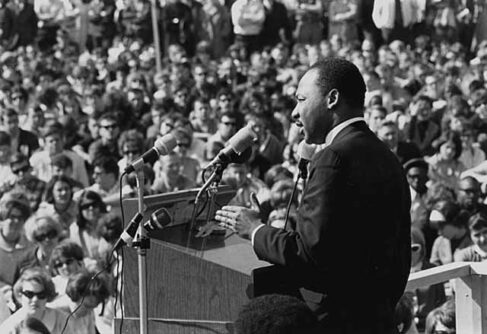Four donors have set out to fund these ideas and debates in a rather unusual way -- by funding the launch of a new journal, American Political Thought: A Journal of Ideas, Institutions, and Culture. The new journal will publish essays about the American political tradition -- contemporary debates, the thought of the Founders, and the thought of Americans during the period running up to the American Revolution.
One might wonder why a new journal about American political thought would be needed -- after all, aren’t the ideas of the Founders well understood after all this time? And can’t contemporary debates be found in other, more popular journals?
However, studying the familiar is often more difficult than studying the foreign; it takes more work to discern what is striking about what we take for granted than what is exotic. I experienced this as a college professor when I had to work much harder to get students to appreciate the revolutionary character of the Federalist Papers and of John Locke’s call for the right to “life, liberty, and estate” -- so familiar to students in the Declaration’s echo of “life, liberty, and pursuit of happiness” -- than I did to get students to appreciate the revolutionary character of Machiavelli’s or Plato’s thought.
Perhaps because American political thought is so familiar, it has taken longer for scholars of political philosophy to take it up as just as worthy of study as older, mostly European political thought. However, that has changed in the last few years as more and more scholars have come to appreciate the subtly of our American political tradition. As the editor of the journal, Notre Dame professor Michael Zuckert, said to me in an interview:
The field of American political thought has matured a lot and there are many more good people working it in.
However, although more high-quality work was being done, it wasn’t easy for scholars to find journals that would publish their work. Given the “publish or perish” imperative of universities, there must be a venue for scholarship to encourage professors to work in a field: work that isn’t published in a high-quality journal won’t count toward tenure or promotion. Thus, without a high-quality journal that will publish scholarship on American political thought, professors won’t study and write about American political thought because they can’t afford to do so for career reasons. As Zuckert noted:
The number of outlets for American political thought are limited, so we wanted to make sure there was an outlet for work in this field. Regular political thought journals don’t see American political thought as their main concern and so aren’t as open to it. . . . We thought it was fitting to put out a journal where political theorists could look to find the fine new work in this field.
The journal wouldn’t be possible without philanthropic support. As Zuckert explained to me:
It costs a lot to put out a journal and, like many start ups, our journal doesn't carry its costs yet. But we hope that in a few years we'll be self-supporting through library and individual subscriptions. Meanwhile, we're grateful to the supporters who are getting us started.
Four donors have backed the new journal: Notre Dame University, the University of Chicago Press, a private foundation, and the Jack Miller Center, which has directed its philanthropy to supporting the teaching of America’s founding principles and history. The Jack Miller Center’s vice president, Dr. Michael Andrews, told me the center saw an opportunity to extend its philanthropy from supporting faculty members and students to supporting the ideas and debates about our American political tradition:
The Jack Miller Center has long supported faculty who are dedicated to the serious study of the ideas undergirding our political tradition. . . . We also felt it important not only to support the scholar, but also to support the scholarship.
The inaugural issue has several essays on the idea of American “exceptionalism” -- I wrote about one of those essays, by University of Virginia professor James Ceaser, a couple weeks ago. Zuckert said that he anticipates future issues partially dedicated to special topics as well as issues wide open to essays on variety of topics in the American political tradition.






1 thought on “Philanthropy and higher education: Funding scholarship as well as scholars”